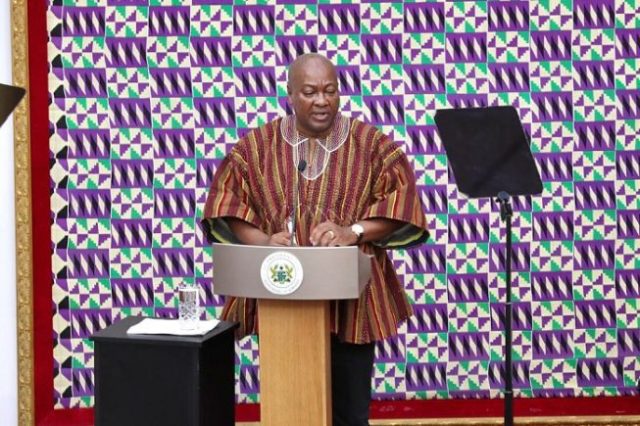President John Dramani Mahama’s first State of the Nation Address to Ghana’s 9th Parliament on February 27, 2025, drew scrutiny from the Institute of Economic Research and Public Policy (IERPP), which challenged several claims in his speech.
The think tank, which cross-referenced the president’s assertions with historical records and financial data, highlighted discrepancies in his portrayal of Ghana’s energy crisis, currency stability, financial sector health, and reserve management.
Dumsor Resolution Claim Contradicted
Mahama’s assertion that his administration resolved Ghana’s chronic power shortages (“dumsor”) by 2016 faced sharp criticism. The IERPP cited public statements made by Mahama himself during the crisis, including a 2016 Citi FM interview where he admitted, “We are not able to get enough gas to feed the power plants,” referencing stalled gas supply from the West African Gas Pipeline. A separate GhanaWeb report from July 2016 further quoted Mahama telling supporters in Tamale that dumsor “was not yet over.” These contradictions, the IERPP noted, undermine the president’s 2025 claim of uninterrupted power supply during his prior tenure.
Cedi Depreciation: Mixed Progress
While Mahama criticized the cedi’s 19% depreciation against the U.S. dollar in 2024, the IERPP contextualized the data. Cumulative exchange rate depreciation under the New Patriotic Party (NPP) government (2017–2023) stood at 71.4%, a marginal improvement from the 73.8% recorded during Mahama’s National Democratic Congress (NDC) administration (2009–2016). The think tank acknowledged persistent volatility but credited fiscal discipline and monetary policies, including the gold-for-oil program, for slowing the currency’s decline. Sustained stability, however, would require deeper reforms and economic diversification, the group cautioned.
Financial Sector Recovery Disputed
Mahama’s claim that Ghana’s financial sector remains fragile despite a GHS 29.9 billion cleanup effort was labeled “misleading” by the IERPP. Citing the World Bank’s 8th Ghana Economic Update, the institute noted that over half of Ghana’s 23 banks now meet recapitalization targets ahead of schedule. Profitability metrics also rebounded sharply: return-on-equity surged from -34.4% in 2022 to +34.2% in 2023, while return-on-assets climbed from -3.8% to 5.4%. The IERPP attributed this recovery to stricter regulations and improved risk management but urged continued fiscal prudence to sustain growth.
Reserves and Debt Management
The president’s criticism of “minimal reserves” left by the previous administration was also contested. Ghana’s gross international reserves currently stand at $8.9 billion—equivalent to four months of import cover—a marked increase from the $5.78 billion (3.4 months of cover) inherited in 2017. The IERPP further revealed that the NPP government left an unspent GH¢700 million in auction excess funds and an additional GH¢3 billion in year-end revenue, contradicting Mahama’s portrayal of depleted reserves.
The IERPP’s analysis underscores the politicization of economic narratives in Ghana’s governance. While acknowledging progress in currency stabilization and banking reforms, the institute stressed the need for nonpartisan accountability, particularly in reconciling past statements with current claims. “Accurate historical reporting is critical to informed policymaking,” the group stated, urging leaders to prioritize transparency over electoral rhetoric. As Ghana navigates ongoing economic challenges, the gap between political declarations and verifiable data remains a hurdle to public trust.
Send your news stories to newsghana101@gmail.com
Follow News Ghana on Google News

















